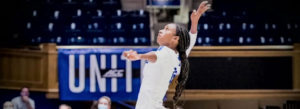It’s hard to say exactly when unbridled, gossipy speculation about the health of our political candidates became an accepted part of the American media landscape. It might have been November 2015, when Vanity Fair published an article entitled “Is Donald Trump Actually a Narcissist? Therapists Weigh In!“. Or perhaps it was a month later, when Buzzfeed lampooned the doctor’s letter that declared Trump physically fit for office, juxtaposing its content with unflattering photographs that suggested he was anything but. (“Trump has lost 15 pounds over the past 12 months and his cardiovascular status is excellent,” was quoted directly above a repulsive photo of the future president cramming what looks like a massive piece of chicken satay into his mouth.)
Certainly, this norm was well-established by the following year. In October 2016, the Washington Post published an article mocking Donald Trump’s weight and asking a panel of “experts” to guess how fat he was. “Even more important than Donald Trump’s weight is how unhealthy he looks,” said cardiologist Dean Ornish. “Unhealthy complexion, puffy, pasty skin, sweating a lot.”
This type of coverage certainly violates the spirit if not the letter of medical ethics, which discourages doctors from performing armchair diagnoses of people they don’t treat. But the Left’s defence was that it was part of a vital truth-telling exercise. The press should have an adversarial relationship with those who seek the privilege of governing us! They should ask tough, even invasive, questions about a candidate’s fitness for office! The health of our aspiring leaders is a matter of public concern, after all, especially when it comes to retaining the necessary faculties to do the job. But especially, and more importantly, when the aspiring leader is that guy. And so, the resistance media was born, and went on to thrive during Trump’s presidency.
At the root of all this was a conviction that it was the job of the press to, as Arianna Huffington put it in 2015, “never [fail] to remind our audience who Trump is and what his campaign really represents” — but this was about more than Trump. He was only the catalyst for a long-overdue transformation of journalistic norms. Telling the public what is true, objectively, became somewhat less important than telling them what is right, morally. And what has since become clear is that this concept of rightness is not just morality-infused but highly partisan — which brings us to last week’s controversial interview between NBC journalist Dasha Burns and Pennsylvania Senate hopeful John Fetterman.
Fetterman is nearly seven feet tall with prominent tattoos, a shaved head, and a penchant for wearing shorts and hoodies rather than three-piece suits. He has become something of a star for Democrats trying to combat their image as smug coastal elites in couture clothing who’ve fallen out of touch with the working class (even though, despite his grungy aesthetic, Fetterman actually holds a PhD). He was also, until recently, well-positioned to win in the upcoming midterm elections against his Republican opponent, Dr Mehmet Oz, a Trump-endorsed candidate who was previously best known for hawking pseudoscientific cures on Oprah.
Unfortunately, Fetterman suffered a relatively serious stroke in May — and while he was back on the campaign trail two months later, he and his team remained somewhat tight-lipped about his health. Videos surfaced of Fetterman seemingly stumbling over his words during public speaking engagements, giving ammunition to Right-wing claims that he was no longer up to the challenges of holding office. Fetterman’s campaign said the videos were misleading; the truth, as usual, appears to be somewhere in the middle.
The NBC interview was his first on-camera since the stroke. Introducing it, Burns told NBC anchor Lester Holt that Fetterman continues to have auditory processing difficulties for which he uses technological assistance, which Fetterman himself explains in the interview: “I sometimes will hear things in a way that’s not perfectly clear, so I use captioning, so I’m able to see what you’re saying.”
The trouble began when Burns told Holt that without the captioning, Fetterman had struggled to communicate: “In small talk before my interview, it wasn’t clear he understood what I was saying,” she said. She clarified these remarks the next day on the Today show, noting that auditory processing issues are not the same as cognitive damage; Fetterman’s problems are specifically listening-related (the signal gets garbled somewhere between ear and brain), can be mitigated, and may also improve over time.
By the standards of 2016 — or indeed, of journalism in general — it was completely appropriate of Burns not to shy away from discussing this issue. Reporters have a solemn duty to tell the honest truth about a candidate’s limitations, whether or not they find that candidate repulsive.
In this case, the NBC appearance was arguably to the candidate’s benefit. The interview, along with the background provided by Burns, makes the extent of his current limitations clear in a way that voters might find reassuring. In contrast to the viral videos, which seemed like serious cause for concern, he came across here as being in relatively good shape.
But rather than being lauded for her brave and honest reporting, Dasha Burns became the resistance media’s sworn enemy of the week. Podcaster Kara Swisher tweeted a scathing criticism of Burns to her million-plus followers, writing: “Sorry to say but I talked to @JohnFetterman for over an hour without stop or any aides and this is just nonsense. Maybe this reporter is just bad at small talk.” The women of The View also jumped on the “Dasha Burns is bad at small talk” train, with Sunny Hostin also claiming that she “broke journalistic ethics”. Buzzfeed condemned Burns for ableism and included quotes from a disability activist who said the interview would “worsen attitudes and violence towards disabled people in a time when virtual accommodations are being removed left and right after they were implemented overnight in 2020”. And Fetterman’s wife, Gisele, said she couldn’t believe Burns had been allowed to describe the candidate’s communication difficulties without “consequences”; she demanded them a few days later: “I would love to see an apology towards the disability community from her and from her network for the damage they have caused,” she said.
The word “damage” is interesting, in that it seems like a rare, open acknowledgement of the deference politicians on the Left have come to expect from the press. (The Burns interview triggered nearly as much outrage as a far more scandalous remark from Oz’s communications adviser Rachel Tripp, who mocked Fetterman’s struggles, saying that if he “had ever eaten a vegetable in his life, then maybe he wouldn’t have had a major stroke and wouldn’t be in the position of having to lie about it constantly”.) Fetterman was, of course, not personally harmed by the observation that he still struggles to interpret speech. His chances of election, on the other hand… well.
But this is what happens when journalists begin to see themselves not as mere reporters, but arbiters of moral truth, with a responsibility not just to inform the public but to guide them to the proper conclusions. And the new norms, and new normal, ushered in during the Trump presidency have lingered long after the conclusion of his time in the White House, to the detriment of basically every election since.
The problem isn’t a press that challenges power, which is of course what the press should always do. The problem is that it challenges inconsistently, and only in one direction. The same folks who spent all of 2016 chortling about how Trump was too fat and crazy and congenitally stupid to be elected president are now, in 2022, calling for sanctions on any journalist who raises salient questions about Fetterman’s fitness for office — and relatedly, studiously ignoring some fairly newsworthy senior moments on the part of President Biden.
That call for moral clarity, which sounded so elevated in theory, becomes something far baser in practice: a facile narrative about heroes and villains that invariably breaks along party lines. We see this not just in the expectation that Fetterman be protected, but in the treatment of his opponent, who has been roundly mocked as an elite Trumpian carpetbagger who can’t even pronounce the name of the local grocery store. Oh, the irony of Oz being condemned for his “Wegners” stumble by the same people who consider it a cardinal sin to even mention the other candidate’s difficulties with verbal communication.
One need not be a Republican to understand why this stuff makes ordinary people feel like they’ve stepped through the looking glass. Or to observe that the media establishment that now frets over the scourge of “big lie” conspiracies is the same one that spent years salivating over the end (it was going to happen, any day now!) of Trump’s obviously stolen presidency. Or to wonder why Stacey Abrams’s refusal to concede the legitimacy of her election loss in 2018 is courageous and inspirational, while Trump’s represents an unprecedented fascist threat. And yet the expectation is that good liberals will not notice the lopsidedness of this narrative — or if they do, that they will never mention it — because to do so would be to express “a Right-wing talking point”. Everything, even the truth, is now filtered through the lens of tribal politics.
Obviously, this makes for especially high drama when a presidency is on the line; obviously, it is especially bad and shocking when the norm-flouter is also the most powerful man in the nation. But it’s the trickling-down of this phenomenon to state and local elections, a reshaping across the board of both politics and the way the press covers them, that genuinely imperils democracy. Elections, once understood as a race, are being increasingly treated like an endless war — one that goes beyond politics as spectator sport, into a world of divergent realities. A world where the loser might capitulate to a corrupt system but never concede defeat. A world where the polarised press no longer even pretends to care about truth, but instead acts like a sort of hype team for its respective party.
And on that front, the upcoming midterms seem poised to be a watershed moment — one in which we either collectively move on from Trump’s America, or decide to live in it, forever.
Disclaimer
Some of the posts we share are controversial and we do not necessarily agree with them in the whole extend. Sometimes we agree with the content or part of it but we do not agree with the narration or language. Nevertheless we find them somehow interesting, valuable and/or informative or we share them, because we strongly believe in freedom of speech, free press and journalism. We strongly encourage you to have a critical approach to all the content, do your own research and analysis to build your own opinion.
We would be glad to have your feedback.
Source: UnHerd Read the original article here: https://unherd.com/




